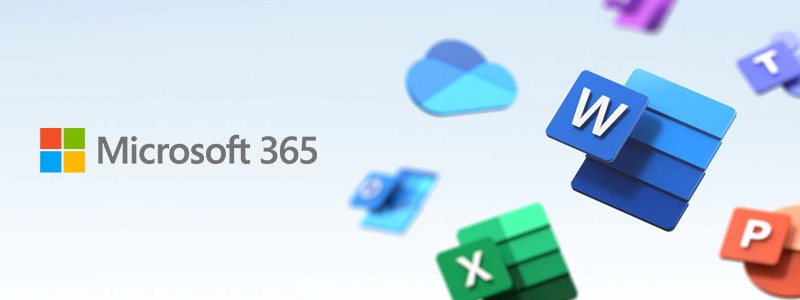Many people confuse the two, understanding that the premium option is more expensive but not knowing why.
Whatever the size of your business, Microsoft 365 can make a world of difference to the way you operate. However, the standard and premium packages are different, so it is important to know which one you are subscribing to.
Let’s take a look at Microsoft 365 Business Standard and Microsoft 365 Business Premium in more detail:
Microsoft 365 Business Standard Package
The Microsoft Standard package costs less than the premium, as you would expect. But it still brings with it plenty of benefits. Should you decide to use this package for your business, it delivers all you need such as Office apps and the standard bundle of cloud services i.e. Teams, Exchange, OneDrive and SharePoint with the additional benefit of web based access to apps. You will have a professional-looking business email as well as a calendar. Microsoft Bookings, Lists and forms are great for internal communication between staff. Whilst this may be more than enough for most businesses, the Microsoft Premium package does pack in a whole lot more.
Microsoft 365 Business Premium Package
The Microsoft Premium package is the top offering for SMEs and is more expensive. But don't be put off by the higher subscription rate as it does bring with it some transformative features that the standard option lacks. As your business expands, you will even be able to manage devices used remotely by employees, thus enhancing security.
You get everything that is included in the standard package plus a myriad of additional features including some of our personal favourites:
- Microsoft Intune is a cloud-based endpoint management solution. It manages user access and simplifies app and device management across your many devices, including mobile devices, desktop computers, and virtual endpoints. You can protect access and data on organisation-owned and users’ personal devices and decide which services staff can access from those devices. And, Intune has compliance and reporting features that support a Zero Trust security model.
- Azure Information Protection (AIP) allows you to gain greater control over the security and compliance of your business information through its robust protection, classification, and encryption model without the need to ask users to complete complex security tasks during their working day.
- Defender offers comprehensive endpoint security for devices across platforms and clouds. It includes threat prevention, detection, and response capabilities for everyone—from small businesses through to the world’s largest enterprises. It also includes access control tools that enable you to remotely wipe, update and set up devices. This package ensures that data remains safe when access is made via apps such as Outlook or Teams. Company devices can be protected so that users cannot install unapproved software. It also includes Microsoft Defender. This makes it the right choice for organisations that have staff working remotely.
- MFA with Conditional Access –Azure AD Multi-Factor Authentication and Conditional Access policies give you the flexibility to require MFA from users for specific sign-in events. Furthermore, when you need to manage staff only having access to specific files or areas of information, this tool takes care of it. You decide who has access to what, when and from which location. This protects sensitive data from being viewed or amended, such as financial documents.
- Self-serve password reset (SSPR) gives users the ability to change or reset their password, with no administrator or help desk involvement. If a user's account is locked or they forget their password, they can follow prompts to unblock themselves and get back to work. This ability reduces help desk calls and loss of productivity when a user can't sign in to their device or an application.
- Single sign-on is an authentication method that allows users to sign in using one set of credentials to multiple independent software systems. Using SSO means a user doesn't have to sign in to every application they use.
- Windows Autopilot simplifies the way devices get deployed, reset, and repurposed, with an experience that is zero touch for IT. With Windows Autopilot, there’s no need to reimage or manually set up new devices before handing them out to your users. Your hardware vendor can ship them, ready to go, straight to your employees.
Summary
Both Microsoft 365 Business Standard and Premium will change the way that your business works, improving efficiency, increasing agility, and boosting security. Which one you choose will depend upon your company size, budget, and software requirements.
We recommend training before going live to ensure you make full use of the many functions. If you don’t invest in staff training, the packages won’t be used effectively, and staff will be left struggling to use some of the sophisticated applications.
This is when working with a professional IT company, such as Ridgewall, makes a world of difference to the way a new Microsoft 365 package is rolled out. Ridgewall helps with the consultancy, setup and installation of even the most advanced security and access management features.
